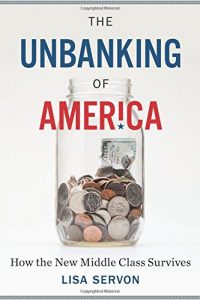Catching up with post-holiday stuff has slowed me down, but I finished John Kay’s new book, [amazon_link id=”B00UJD8AS2″ target=”_blank” ]Other People’s Money: Masters of the Universe or Servants of the People?[/amazon_link] on a flight back from his native Edinburgh yesterday. It is characteristically excellent, drawing the main threads out of the complexities of modern financial history and the post-crisis consequences, and writing with beautiful clarity and style. It’s up there with John Lanchester’s [amazon_link id=”014104571X” target=”_blank” ]Whoops![/amazon_link] as a guide to understanding what has happened in finance. I agreed with every word. I don’t suppose he’d want the job, but it would be marvellous if we could put John in as Chancellor to sort things out.
[amazon_image id=”B00UJD8AS2″ link=”true” target=”_blank” size=”medium” ]Other People’s Money: Masters of the Universe or Servants of the People?[/amazon_image]
The book tells the story of the financialisation of the British and global economies in its first section, and the transition from relationship-based financial services focused on customers and the real economy to transactional and trading-based financial entities.This progressive shift in behaviour, values and institutions affected the whole of the corporate sector. The book offers a telling contrast between the 1987 and 1994 annual reports of ICI:
“ICI aims to be the world’s leading chemical company, servicing customers internationally through the innovative and responsible application of chemistry and related science. Through achievement of our aim we will enhance the wealth and well-being of our shareholders, our employees, our customers and the communities which we serve and in which we operate.”
versus
“Our objective is to maximise value for our shareholders by focusing on businesses where we have market leadership, a technological edge and a world competitive cost base.”
This has happened across the whole of the business sector throughout the west. It’s tragic. Risk taking at the expense of others, bonus culture, income inequality, short termism, declining business investment, overly-detailed regulation having utterly adverse consequences, and the taxpayer still in line to prop up the whole edifice if – or rather when – the financial sector gets hit by another tail risk it can’t cope with. As Kay underlines, and as [amazon_link id=”B00HZ634AU” target=”_blank” ]Admati and Hellwig[/amazon_link] pointed out so clearly, and even Alan Greenspan now admits, the banks have far, far too little equity capital and too much leverage. The summary here of Deutsche Bank’s balance sheet is terrifying.
The book is particularly clear about the inadequacy of banks’ current levels of shareholder capital vs debt on their balance sheets, and the nonsense of the Basel risk weightings, and banks’ claiming they can achieve 15% return on equity – always done by reducing the amount of equity in the denominator. Kay writes: “Return on equity is an inappropriate performance metric for any company, but especially for a bank; and it is bizarre that its use should have been championed by people who profess particular expertise in financial and risk management.” Bizarre, or perhaps just cynical.
So what to do about it? Especially as financial markets start displaying the kind of declines that could, potentially, wipe out a frail bank’s mimimal equity? The book has good answers. Kay starts with a set of principles for reform, including shorter chains of intermediation before the final customers, more focused and specialist financial institutions, a prioritisation and demonstration that the financial institution has its clients’ interests at heart (hello, Goldman Sachs), criminal and civil penalities applied to individuals (not fines on institutions), simpler regulation. Above all, politicians should abandon the illusion that the finance sector is special compared to other sectors of business. After all, the numbers don’t make sense; it has certainly not contributed as much to the economy as is claimed, and is not financing industry or serving the needs of investors.
In detail, the book favours structural remedies, not more and more regulation of behaviour – that is an arms race between banks and regulators that the former, with their ability to extract vast rents and hire lawyers/lobbyists will always win. Kay sees ring fencing of retail activities from investment banking as a ‘first step’. I agree: the too-big-to-fail-subsidy will always be too big for as long as there are any links. There needs to be a structural separation, and deposit guarantees only for utility retail/small business banking. He also puts great weight on individual civil and criminal responsibility.
Towards the end of the book comes one of many eye-popping quotations from Goldmans executives:
Sen C Levin (D, Michigan): When you heard that your employees in these emails and looking at these deals said, “God, what a shitty deal!)… do you feel anything?
Mr D.A.Viniar (CFO, Goldman Sachs): I think that is very unfortunate to have on email.
No wonder Kay concludes: “The finance sector of modern western economies is too large.” Spot on. It takes too many of the best graduates, distorts pay across the corporate sector, fails to innovate on behalf of its customers, and exposes taxpayers to unsupportable risks. Financial conglomerates need to be broken up, banks need to hold much higher levels of equity capital.
Financialisation has even damaged unfairly the standing of the role of markets (and economics): “The intellectual misconception behind the thought that prosperity might be enhanced by trade in baseball cards has been associated with an economic model that misunderstands the (important) role that markets play in enabling complex modern economies to manage information,” Kay writes. Prices are important signals – just not the prices on the trading room screens.
Shrinking the finance sector takes the book in its final pages to the influence of money and lobbying on politics. Which politicians are going to serve the people instead of the masters of the universe? Unfortunately I haven’t heard even the Labour leadership candidate my Tory best friend has renamed “The Gift that Keeps on Giving” addressing this. As for the American system, utterly bought by big money, beyond hope.
Meanwhile, I hope lots of people will read [amazon_link id=”B00UJD8AS2″ target=”_blank” ]Other People’s Money[/amazon_link] and then send it on to their elected representative with suitable passages highlighted, saying – if you want my vote next time, act on this.



